R4C-IRG

R4C-IRG Interdisciplinary Research Group:
Scaling Complex Thinking for All
Research group members

PhD in Philosophy and Educational Sciences from the University of Salamanca. She coordinates the interdisciplinary research groups "Scaling Reasoning for Complexity for All" and "Educational Technology Unit", at the Institute for the Future of Education of the Tecnológico de Monterrey (Mexico). She is Chair UNESCO "Open Educational Movement for Latin America" and of the International Council for Open and Distance Education "Open Educational Resources for Latin America". Researcher level 3 of the National System of Researchers of Mexico. Her lines of research are educational innovation and open education. She focuses her activities on the dynamization of educational initiatives, with innovation, research and global sense, as a means of transformation and social impact for lifelong learning and sustainable development.

His main lines of research are in Acoustic Signal Processing and Social Robotics, a line in which he has largely developed in recent years with a focus on health and education (from pre-school to high school levels), in addition to incursions with theater plays with robots, radio broadcasting and promotion and encouragement of technology. He has presented several research articles, collaborated in book chapters and has participated in different congresses. Currently, he is a Researcher Level I in the National System of Researchers before CONACYT in the Engineering and Science Section.

Received his PhD in Kansei Science (Affective Engineering) from the Center for Advanced Research in Neuroscience, Behavior and Kansei at the University of Tsukuba, Japan. He did a postdoctorate at the University of Guadalajara where he developed the Gradual Immersion Method, aimed at enhancing creative cognition.She is a member of the National System of Researchers (SNI) level 1, whose interest focuses on issues of creative cognition and development of 21st century competencies. He is currently a member of the faculty of the Doctorate in Educational Innovation and Assistant Professor-Researcher in Design, full time, at the School of Architecture, Art and Design (EAAD), both at the Tecnológico de Monterrey, Campus Guadalajara.

Mechatronics engineer, holding a doctorate in Engineering with a specialisation in Renewable Energies from the Autonomous University of Yucatan. His research area focuses on AI, machine learning, digital twins, and optimization for the understanding of cyber-physical systems. He is currently Research Professor in the Educational Technology research group of the Institute for the Future of Education at the Instituto Tecnológico y de Estudios Superiores de Monterrey. He has authored 30+ articles in journals, holds 2 patents, and has delivered 40+ conferences. With an h-index of 15, he reviews for over 20+ journals.

PhD in Humanistic Studies with a specialisation in Ethics from the Tecnológico de Monterrey. He is currently Research Professor in the Department of Humanistic Studies of the School of Humanities and Education at the Tecnológico de Monterrey Campus Guadalajara. His research interests are LGBTIQA Studies, Gender Studies, Economic Ethics and Educational Innovation. He has more than 100 articles published in journals in more than 20 countries. He has carried out several studies on the development of transversal competences in the university environment.

Doctor in Computing and Telecommunications from INP-LAAS in Toulouse, France. His interests are distributed systems, cloud computing, mobile application development and systems architectures for decision-making, where he has advised 2 doctoral theses and 17 master's theses. Author of more than 30 articles in JCR, conferences and book chapters. He was director of the Graduate Programs in Computer Science at Tecnológico de Monterrey (2007-2015), Mexico. Leader of the Decision Making Centers initiative, where he has participated in the creation of four centers in Mexico and one in China.
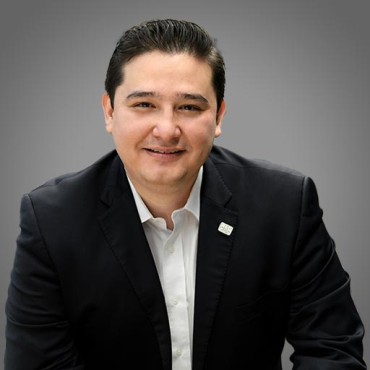
Ph.D in Educational Innovation at Tecnológico de Monterrey. Program director of the Master in Education Entrepreneurship and researcher at the School of Humanities and Education (EHE), Tecnologico de Monterrey. His research interests are educational innovation and the development and use of technology in education. He focuses his management, research, teaching and extension and internationalization activities on the promotion of learning environments that have an impact on social and economic transformation.

PhD in Operation Management from the Tecnologico de Monterrey, Mexico. Associate Researcher at the Educational Technology Unit of the Institute for the Future of Education at the Tecnológico de Monterrey (Mexico City campus). His interests are educational innovation, serious games, optimization, logistics and supply chains. Professor of the Department of Industrial Engineering at Campus Ciudad de México. Creator of the GOAL Project online platform and designer of the LOST Logistics Simulator. He has published more than 25 articles in Scopus Conferences and Journals.

Engineering Phd, full-time research professor in the Educational Technology research group at the Institute for the Future of Education, Tecnológico de Monterrey. Her research areas are Design Methodologies, Design for Social Innovation, Transition Design and Inclusive Design. Leader of the PULI Program at Chiba University, Japan and founding member of Interuniversity Design Workshop. Collaborator for institutions such as UNESCO, and the Mexican Educational Infrastructure Institute (INIFED). Peer evaluator of the Mexican Council for the Design Programs Evaluation; jury member for the Mexican Design Biennale, the National Design Prize.

Holds a PhD in Informatics from Tecnológico de Monterrey (1998). He is Full Professor at the School of Engineering and Sciences, Leader of the Research Group in Intelligent Systems and, until recently, Director of the Graduate Program in Computer Science. He is a member of the National System of Researchers, the Mexican Academy of Sciences, the Mexican Academy of Computing, and a Senior Member of the IEEE. His research interests are computational intelligence and applications of artificial Intelligence and machine learning. He has been principal investigator of various research and application projects and has published more than 110 research articles in international journals and conferences.

Researcher member of the Product Innovation Research Group and a member of the Reasoning for Complexity Interdisciplinary Research Group at the Tecnologico de Monterrey University in Mexico. He received the B. Eng. degree in Mechatronics from the Tecnologico Nacional de México, Ciudad-Hidalgo Campus, Michoacan. His postgraduate studies were carried out at the Tecnologico de Monterrey, and he received an M.Sc. and a Ph.D. in Engineering Sciences with a concentration in Manufacturing Systems and Product Design, respectively. During his postgraduate studies, he was a visiting scholar at the Tecnologico de Costa Rica and the University of California, Berkeley. His current research interests include product design, open innovation, entrepreneurship, and educational innovation. He has co-authored different research articles, books, and chapters books in the Manufacturing and Education sectors. He also has a granted patent in the area of micromachining. He is a member of the National Researchers System of Mexico.
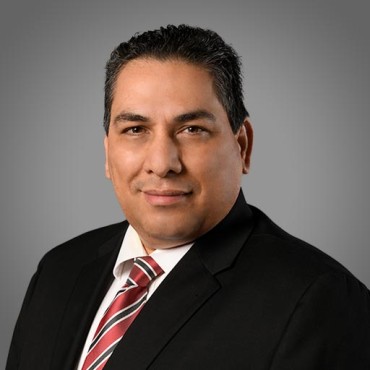
Holds a Master's degree in Information Technology Management, as well as a Master's degree in Information Science and Knowledge Management from Tecnológico de Monterrey (ITESM). His lines of research are focused on the development of technological strategies for education, educational innovation, knowledge management and the open educational movement. Is Director of the National Office of Libraries at the Tecnológico de Monterrey. Fellow of the UNESCO & ICDE Chair: Open Educational Movement for Latin America. Also, is member of the Council of the Regional Node of Open Education for Latin America - OE LATAM - sponsored by the OEGLOBAL Global Education Consortium.

PhD studies in Artificial Intelligence from the INSA-LAAS in Toulouse, France. Interest in Machine Learning, Data Management and Computer Vision applications, in which he has advised 11 PhD thesis and 26 Master's Thesis. Author of more than 120 articles in JCR, congresses and book chapters. He works as professor–researcher, he was the responsible of the Intelligent Systems Research group (2007-2015), and head of the Graduate Programs on Computer Sciences at Tecnologico de Monterrey (2005-2016), Mexico. Dr. González Mendoza leads several Mexican and European Commission research projects (as local chair), SNI II, is Former President of the Mexican Society for Artificial Intelligence (2016-2018). Regular Member of the Mexican Academy of Sciences and Regular Member of the Mexican Academy of Computing, Young Scientist at the World Economic Forum.

Ph. D. in Psychology from the Faculty of Psychology of the National Autonomous University of Mexico, (UNAM). Postdoctoral researcher of the IRG-R4C Interdisciplinary Research Group Reasoning for Complexity of the Institute for the Future of Education, Tecnológico de Monterrey (Mexico). Her research areas are human development, mental health, processing speed, and ICT usage, as well as the study on teaching-learning processes in higher education and educational innovation. As a researcher, collaborates in the Bryn Mawr College in USA and the Universidad del Desarrollo (UDD) in Chile.
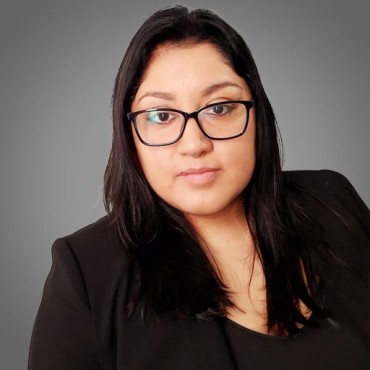
Ph.D in Educational Technology from the Faculty of Education at Laval University. Postdoctoral Researcher of the R4C-IRG research group at the Institute for the Future of Education (IFE) at Tecnológico de Monterrey. Her lines of research focus on Digital Game-based Learning, ICT integration in Formal Education for the development of 21st century skills, Teaching and Learning Second languages, and the use of emerging technologies in Continuing Education and Lifelong Learning.

Ph.D in Educational Sciences. Postdoctoral researcher of the IRG-R4C of the Institute of the Future of Education of the Tecnológico de Monterrey, collaborates with the GIEE of Educational Innovation in the School of Humanities and Education, is Leader of the Subgroup Development and Use of Technology in Education. He advises applied research projects (PIA-thesis) in the Master's program in Educational Technology and thesis in the Doctorate in Educational Innovation.
He is a member of the National System of Researchers, the Mexican Council for Educational Research (COMIE), the Mexican Society for Comparative Education (SOMEC) and the Research Group on Emerging Technologies for Learning (GITEMA- Cuba). She participates in multidisciplinary research projects in the lines of: innovation and educational entrepreneurship, literacy and digital skills for the 21st century. He is the author of articles in journals of international impact, book chapters and presentations at international conferences.

Carolina Alcántar Nieblas Ph. D in Education at the University Autonomous of Sinaloa. She did a Master in Research Educational and a Bachelor of Science in education at the Institute of Technological of Sonora. She is currently a Postdoctoral Researcher at the Educational Technology Unit of the Institute for the Future of Education at the Tecnológico de Monterrey (Monterrey campus). Collaborated on some research projects about violence in peers of adolescents in online contexts and doing activities such as scale validations and structural equations models. Her research interests are family and school moral contexts, violence between peer adolescents, and moral emotions.

Virginia Rodés Paragarino, PhD in Equity and Innovation in Education (University of Santiago de Compostela), Postdoctoral Fellow at the Educational Technology Unit of the Institute for the Future of Education. Member of the National System of Researchers of Uruguay in Social Sciences-Communication and Media. Her lines of research address the study, development and adoption of educational technologies in higher education, with emphasis on open education. He holds the UNESCO Chair in Open Education (Uruguay), is a member of the LATAM Regional Node of Open Education Global and the Open Education for a Better World Advisory Board, and is a Fellow of the Global OER Graduate Network (GO-GN).

PhD in Philosophy of Science from the National Autonomous University of Mexico (UNAM). Postdoctoral researcher in the interdisciplinary group of Reasoning for Complexity at the Institute for the Future of Education of the Tecnológico de Monterrey, Guadalajara campus. Research interests: Strategies in communication and popularization of science in non-formal and formal education, Philosophical and social studies on science and technology, citizen science, transversality between Humanities and Science.

Postdoctoral fellow of the Educational Technology Unit of the Institute for the Future of Education. Candidate for National Researcher. Ph.D. in Human Genetics from the University of Guadalajara at the University Center for Health Sciences. Graduate in Chemistry and Pharmacology from the University of Guadalajara at the University Center for Exact Sciences and Engineering. His research fields have been The Genomics of Cardiovascular Diseases, COVID-19, Genetic Endurance in athletes, and Cancer. He currently applies Data Science techniques for the analysis of genomic databases and pretends to contribute with this knowledge to the generation of tools to enhance complex thinking in Education.

PhD in Educational Mathematics from the DME of CINVESTAV, IPN. Full-time Professor at the UAEM Valle de Chalco University Center. Her lines of research: Applied and Educational Mathematics, Development of Intelligent Tutorial Systems and Training of Researchers. He belongs to the National System of Researchers Level 1, Desirable Profile Prodep (SEP) and is a member of the Consolidated Academic Body of Applied Computing (SEP). Advisor in the Master's and Doctorate in Computer Science, a postgraduate degree of excellence from Conahcyt. Associate Editor of the journal El Cálculo y su Enseñanza and Organizer of the International Meetings on the Teaching of Calculus, Science and Mathematics (EICAL).
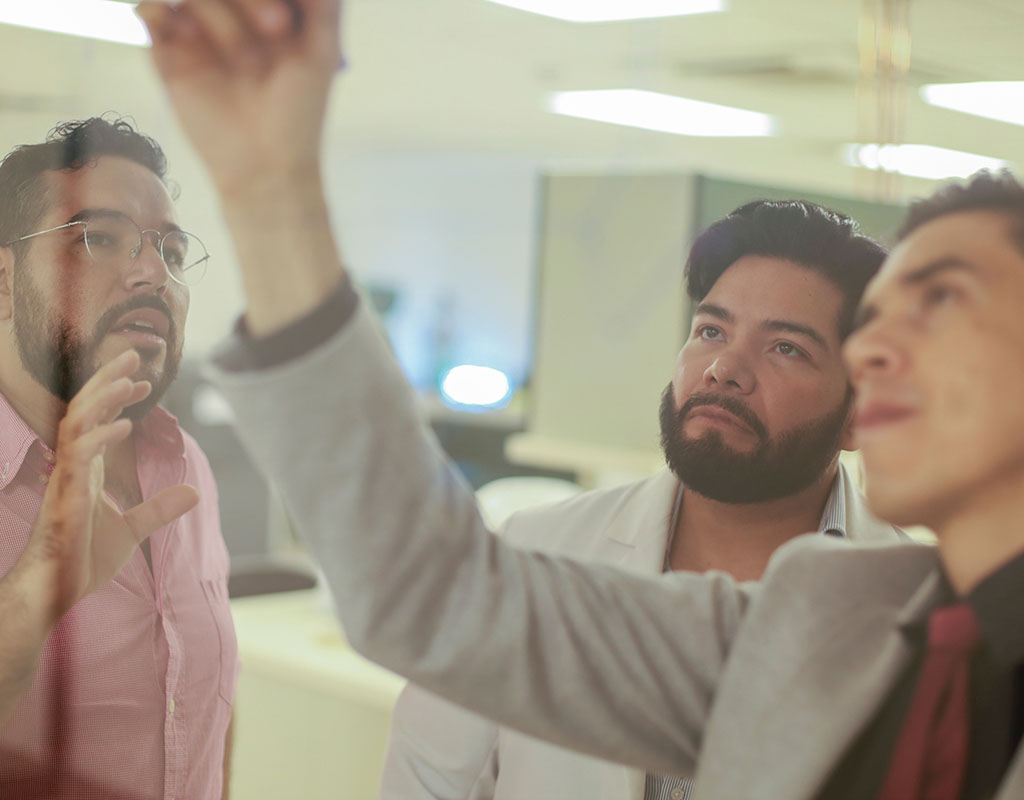
Open call for research faculty positions at the Tecnologico de Monterrey
The Interdisciplinary Research Group on Educational Technology of the Institute for the Future of Education of the Tecnológico de Monterrey (Mexico), has an open call for research professor positions at the Monterrey Campus.
Interested applicants can apply at:
Posdoctoral position: Pedagogical and technological approaches that lead to effective learning
Posdoctoral position: Education, Humanities, Statistics, Psychology or similar
Scaling up complex thinking for all
The R4C-IRG Interdisciplinary Research Group: Scaling Complex Thinking for All presents its progress at the 52nd Research and Development Congress. The event takes place from 01 to 04 March 2022, in Monterrey, Nuevo León, Mexico.
The aim is to share the progress publications and projects of the R4C-IRG, which encompasses knowledge generation and transfer initiatives, collaborative project development, and entrepreneurship and technology transfer, to achieve the goal of scaling up levels of complex thinking in higher education students.

Reference:
Ramírez-Montoya, M.S., Glasserman Morales, L. D., Álvarez-Icaza, I., Sanabria Zepeda, J. C., Miranda Mendoza, J., Terashima-Marín, H.,González Peña, O.I., Morales Menéndez, R., Molina, J.M., González Mendoza, M., Alonso Galicia, P. E., Vázquez Parra, J.C., López Caudana, E.O., Ponce Cruz, P., Burgos Aguilar, J.V., Suárez Brito, P.,Lindín Soriano, C., Hernández Gress, N. (2022). R4C (Research for complexity)-Escalando el razonamiento complejo para todos. In 52 Congreso de Investigación y Desarrollo. Tecnológico de Monterrey. México. Retrieved from: hdl.handle.net/11285/645228
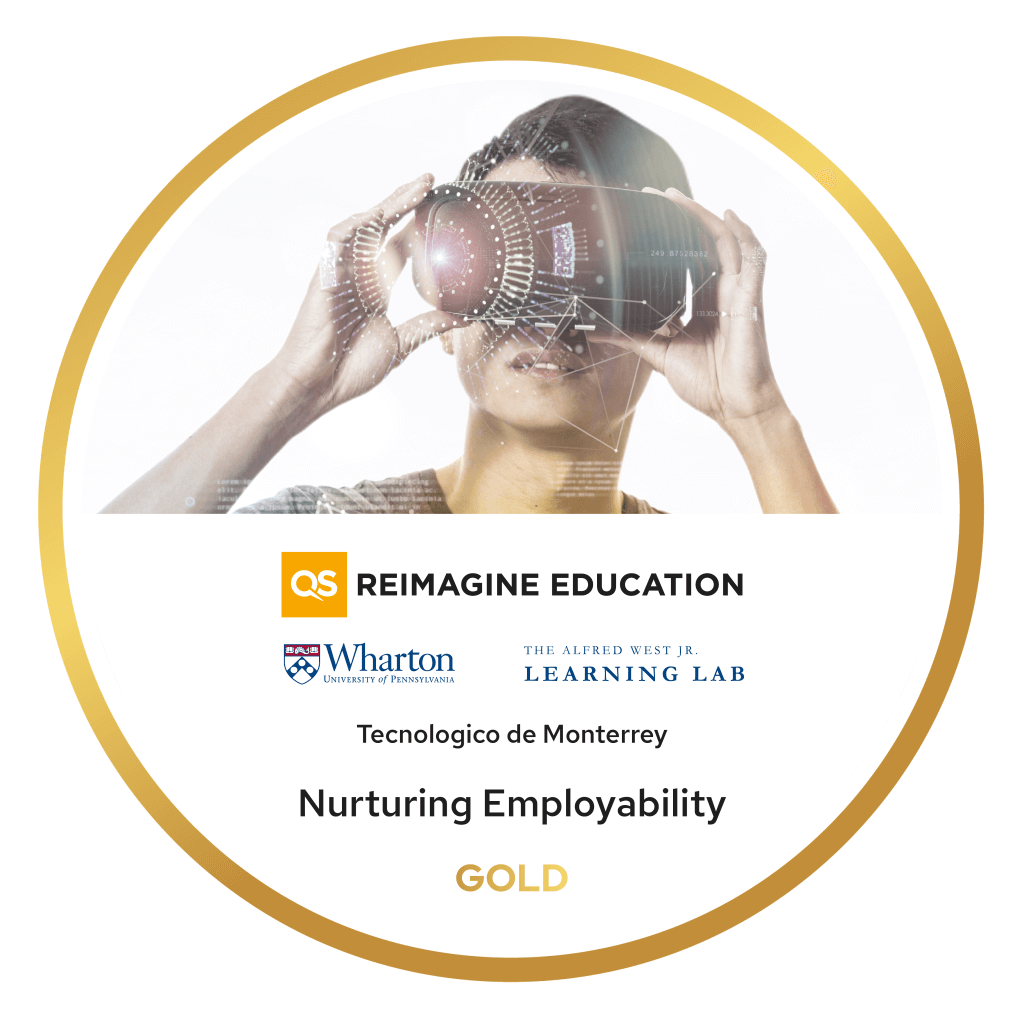
International 2021 "QS Reimagine Education Awards"
Awarded by QS Quacquarelli Symonds (Nurturing Employability Gold Award Winner List), for the project "Education 4.0 Platform to Foster Innovation and Entrepreneurship for All"
Around 1,100 projects from 100+ countries participated in the event, which were competing in 25 categories, including project approach, project impact, scalability, innovation and originality.
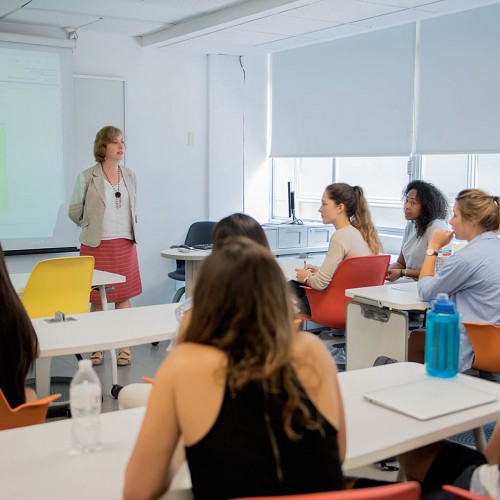
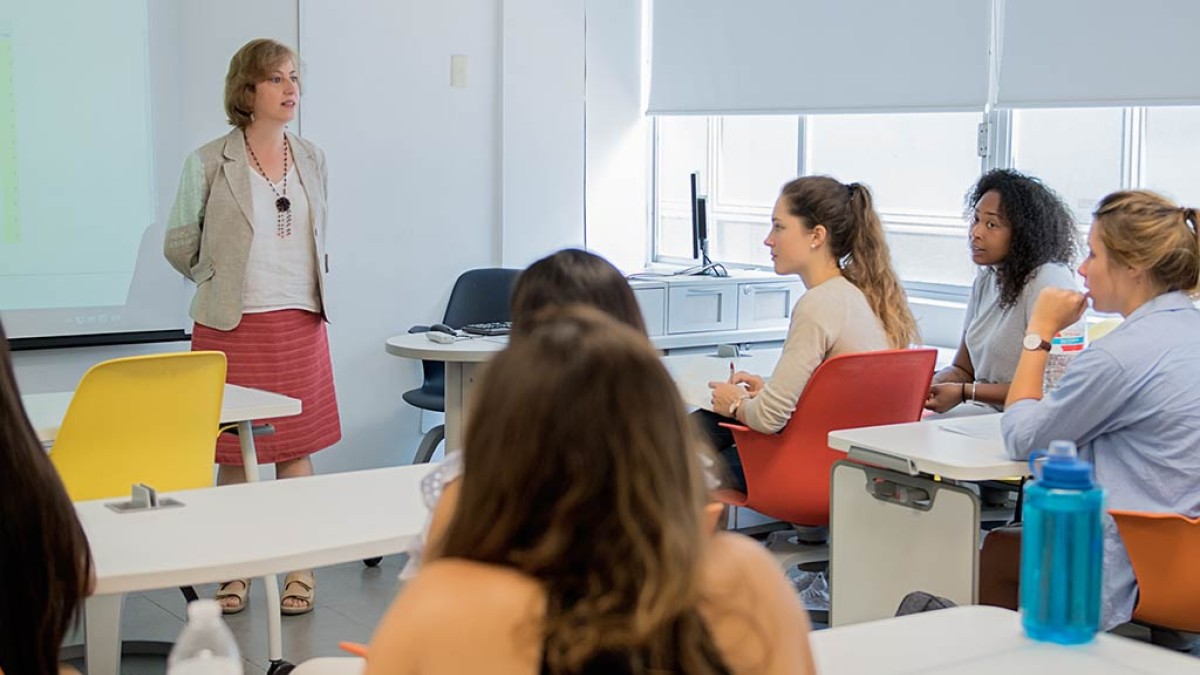
WUN and UNESCO Training and Research Networks.
Funding Agency: WUN. Funding: 10,000 pounds sterling. Period: 2021-2022. Technical Manager: María Soledad Ramírez Montoya. R4C-IRG Researchers: José Vladimir Burgos Aguilar, Leonardo David Glasserman Morales, Abel García González and Isolda Margarita Castillo Martínez. External researchers: Joanne Catherine Weber, Lizbeth Goodman, Constance Blomgren, Mark Pegrum, Glenda Cox and Jako Oliver.


Funding entity: Siemens Stiftung. Funding: 45,574 euros. Period: 2021-2022. Technical Manager: José Escamilla de los Santos (Tecnológico de Monterrey). R4C-IRG researchers: María Soledad Ramírez-Montoya and José Vladimir Burgos Aguilar. Researchers from Tecnológico de Monterrey: Genaro Zavala.


Innovation with artificial intelligence and robotics to scale levels of reasoning domain for complexity
Funding entity: Novus. Funding: 320,000 pesos. Period: 2021-2022. Technical Manager: María Soledad Ramírez Montoya. R4C-IRG researchers: Edgar Omar López Caudana, Jorge Carlos Sanabria Zepeda; Neil Hernández Gress; Leonardo David Glasserman Morales and Isolda Margarita Castillo Martínez. Researchers from Tecnológico de Monterrey: Gabriela Torres Delgado; Elvira Guadalupe Rincón Flores; Arturo Vargas Olivares; Davis Velarde Camaqui; Israel Ulises Cayetano Jiménez. External researchers: María Rosa García Ruíz; María del Carmen Álvarez Álvarez; Guillermo Rodríguez Abitia; Sandra Martínez Pérez; Antonio Millan Arellano.


Innovation with artificial intelligence to develop social entrepreneurship competence and linkage processes.
Funding: 320,000 pesos. Novus. Period: 2021-2022. Technical Manager: María Soledad Ramírez Montoya. C4C-IRG Researchers: José Carlos Vázquez Parra; Patricia Esther Alonso Galicia, Jhonattan Miranda Mendoza and Abel García González. Researchers from Tecnológico de Monterrey: Jan Rehak, Arturo Molina Gutiérrez and Omar Olmos López. External researchers: José María Romero Rodríguez; Alicia García Holgado; Francisco García Peñalvo and Laura Icela González.


Visual analytics and machine learning for decision-making in health ecosystems
Funding entity: State Research Agency within the framework of the State Programmes for Knowledge Generation and Scientific and Technological Strengthening of the R&D&I System and R&D&I Oriented towards the Challenges of Society, of the State Plan for Scientific and Technical Research and Innovation 2017-2020. Fund: 78,166 euros. Period: 2021-2025. Technical manager: Francisco José García-Peñalvo (University of Salamanca). R4C-IRG researcher: María Soledad Ramírez-Montoya.
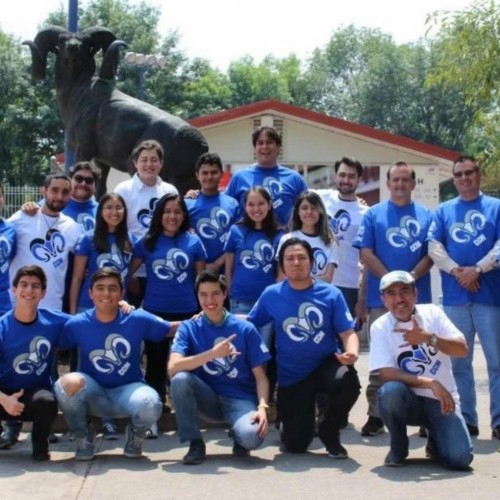
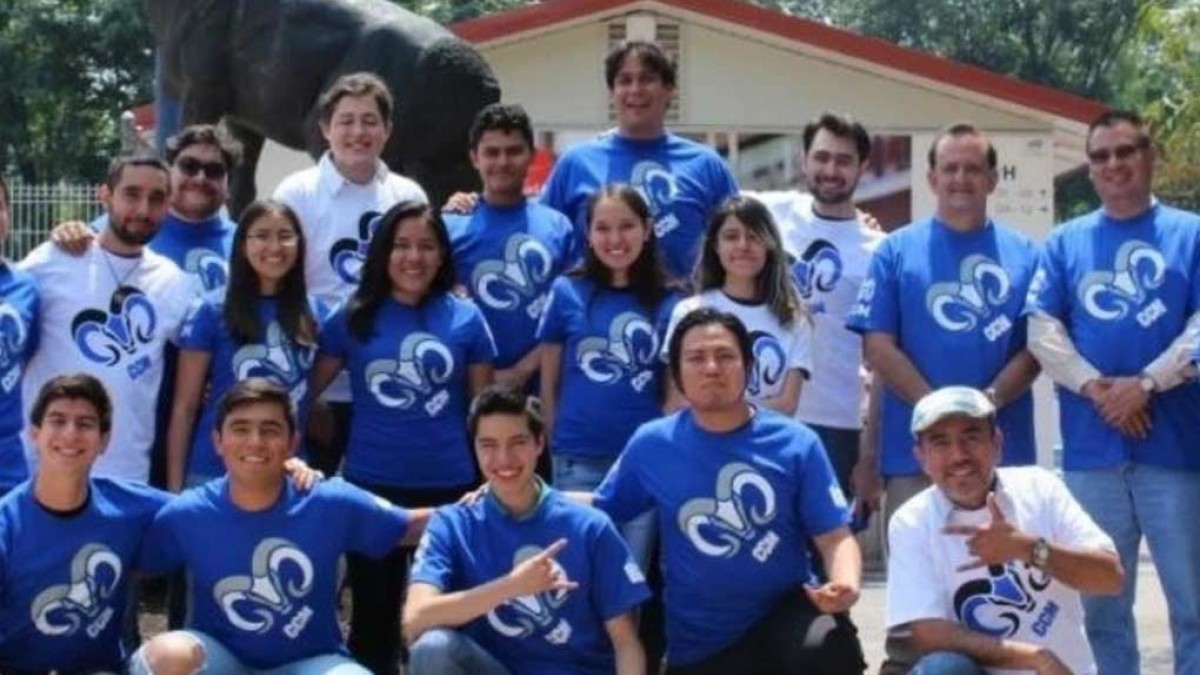
Social Project Robotics Research Team
Funding entity: Novus. Funding: 200,000 pesos. Period: 2018-2022.Technical manager: Edgar Omar López Caudana. R4C researchers: María Soledad Ramírez Montoya, Pedro Ponce Cruz. Tecnológico de Monterrey researchers: Omar Mata Juárez, David Balderas, Jesus E. Chong, David Navarro Durán, Raul Crespo, Luis Montesinos. External researchers: Nancy C Mazón Parra; Guillermo Rodríguez Abitia; Sandra Martínez Pérez, Carlos Moreno García.


Collaborative Online International Learning (COIL) Project
Funding entity: Support for new internationalisation initiatives of the Vice-Rectorate for Internationalisation of the University of Granada. Fund: 180 euros. Period: 2021. Technical Manager: José María Romero (University of Granada). R4C Researchers: María Soledad Ramírez Montoya and Leonardo David Glasserman Morales.


MERIT: Central Bohemia Mobility Programme for Excellence in Research, Innovation and Technology
Funding entity: Co-funding of regional, national and international programmes Marie Skłodowska-Curie Actions, HORIZON-MSCA-COFUND-2021 call. Total fund assigned to Central Bohemian Innovation Center (SIC), Czech Republic: Euros 3,582,000; Associate partner’s fund assigned to Tecnologico de Monterrey: Euros 56,860. Period: 2022-2027. Technical manager: Martina Vycudilíková Outlá (SIC). R4C-IRG lead researcher: Jorge Carlos Sanabria Zepeda. R4C-IRG researchers: María Soledad Ramírez Montoya, Rubén Morales Menéndez, Edgar Omar López Caudana, Miguel González Mendoza, Omar Israel González Peña, José Carlos Vázquez Parra, Inés Álvarez Icaza Longoria, Patricia Esther Alonso Galicia, Jose Vladimir Burgos Aguilar, José Martín Molina Espinosa.
Open calls:
- Frontier in Education (Q2). Special Issue “Artificial intelligence (AI) in the complexity of the present and future of education: research and applications”. 5th May 2024
https://www.frontiersin.org/research-topics/60814/artificial-intelligence-ai-in-the-complexity-of-the-present-and-future-of-education-research-and-applications
Closed:
-
Open call for Bootcamp "Building together the future of education: innovation, interdisciplinary research and science of education: innovation, interdisciplinary research and open science"
https://www.research4challenges.world/en/future-education-bootcamp - Measuring the impact on the teaching/learning process derived from the introduction and experimentation with remote laboratories in higher education
https://ifelldh.tec.mx/en/virtual-labs-experimentation-call - Creating innovative pedagogical materials for the development and deployment of virtual labs for multidisciplinary higher education courses in hybrid learning environments
https://ifelldh.tec.mx/en/virtual-labs-development-call - Frontier in Education (Q2). Special Issue “Building the Future of Education Together: Innovation, Complexity, Sustainability, Interdisciplinary Research and Open Science ”. Deadline: 15th february 2024.
https://www.frontiersin.org/research-topics/59267/building-the-future-of-education-together-innovation-complexity-sustainability-interdisciplinary-research-and-open-science - Education Research International. Special Issue “Competencies for Complex Reasoning in the Framework of Education 4.0 and Open Science”. Deadline: 22th july 2022. link
https://www.hindawi.com/journals/edri/si/672472/ - Sustainability (Q2). Special Issue "Education 4.0: Mobilizing for Sustainable Development". Deadline: 31th October 2021.
https://www.mdpi.com/journal/sustainability/special_issues/edu_mobiliz_sus - Future internet (Q2). Special Issue "Education 4.0 in the Transformation of Universities: Educational and Research Applications". Deadline: 30th November 2021.
https://www.mdpi.com/journal/futureinternet/special_issues/Education_4_TUERA - Frontier in Education (Q3). Special Issue “Open Education for Sustainable Development: Contributions from Emerging Technologies and Educational Innovation”. Deadline: 31th December 2021.
https://www.frontiersin.org/research-topics/21472/open-education-for-sustainable-development-contributions-from-emerging-technologies-and-educational - RIED (WoS). Revista gratuita que acepta en español, inglés y portugués. Special Issue “Transformación digital y educación 4.0 según recomendaciones UNESCO: oportunidades para ambientes blended y a distancia”.
https://blogderied.blogspot.com/2021/04/call-for-papers-monografico-ried.html “Digital Transformation and Education 4.0 Following UNESCO Recommendations: Opportunities for Blended and Distance Environments”.
https://blogderied.blogspot.com/2021/04/digital-transformation-and-education-40.html Deadline: 30 November 2021.
- R4C Complex thinking
-
Baena-Rojas, J. J., Ramírez-Montoya,M.S., Mazo-Cuervo, D.M. & López-Caudana, E. O. (2022). Traits of Complex Thinking: A Bibliometric Review of a Disruptive Construct in Education. Journal of Intelligence 10(37). https://doi.org/10.3390/jintelligence10030037 Retrieved from: https://hdl.handle.net/11285/648509
Cruz-Sandoval, M., Vázquez-Parra, J.C. & Alonso-Galicia, P. (2022). Student Perception of Competencies and Skills for Social Entrepreneurship in Complex Environments: An Approach with Mexican University Students. Social Sciences, 11(7), Art.314. https://doi.org/10.3390/socsci11070314 Retrieved from: https://repositorio.tec.mx/handle/11285/648721
Cruz-Sandoval, M., Vázquez-Parra, J.C. & Carlos-Arroyo, M. (2023). Complex Thinking and Social Entrepreneurship. An approach from the methodology of compositional data analysis. Heliyon. https://doi.org/10.1016/j.heliyon.2023.e13415 Retrieved from: https://hdl.handle.net/11285/650173
George-Reyes, C. E., Ramírez-Montoya, M. S., & López-Caudana, E. O. (2023). Imbrication of the Metaverse in the complexity of education 4.0: Approach from an analysis of the literatura [Imbricación del Metaverso en la complejidad de la educación 4.0: Aproximación desde un análisis de la literatura]. Pixel-Bit. Revista de Medios y Educación (66), 199–237. https://doi.org/10.12795/pixelbit.97337 Retrieved from: https://hdl.handle.net/11285/650030 y https://hdl.handle.net/11285/650031
George-Reyes, C., López-Caudana, E.O., Ramírez-Montoya, M.S. y Ruiz-Ramírez, J. (2023). Pensamiento computacional basado en realidad virtual y razonamiento complejo: caso de estudio secuencial. RED. Revista de Educación a Distancia, 23(73). http://dx.doi.org/10.6018/red.540841 Retrieved from: https://hdl.handle.net/11285/650112
Miranda, J., Molina, A., Ramírez Montoya, M.S., López Caudana, E.O. & Escalera, J. (2022). Collaborative Networks and Sustainability in Education 4.0: An Approach to Achieve Complex Thinking Competencies in Higher Education. Collaborative Networks in Digitalization and Society 5.0. Springer Nature. Retrieved from: https://hdl.handle.net/11285/649752
Pacheco-Velázquez, E.A, Vázquez-Parra, J.C., Cruz-Sandoval, M., Salinas-Navarro, D.E. & Carlos-Arroyo, M. (2023). Business Decision-Making and Complex Thinking: A Bibliometric Study. Administrative Sciences 13(3), 80. https://doi.org/10.3390/admsci13030080 Retrieved from: https://hdl.handle.net/11285/650303
Patiño, A., Ramírez-Montoya, M.S. & Buenestado-Fernández, M. (2023). Active learning and education 4.0 for complex thinking training: analysis of two case studies in open education. Smart Learning Environments 10(8). https://doi.org/10.1186/s40561-023-00229-x Retrieved from: https://hdl.handle.net/11285/650100
Ponce, P., Ramirez, R., Ramirez-Montoya, M.S., Molina, A., MacCleery, B. & Ascanio, M. (2022). From understanding a simple DC motor to developing an electric vehicle AI controller rapid prototype using MATLAB-Simulink, real-time simulation and complex thinking. Frontiers in Education 7, 941972. doi: 10.3389/feduc.2022.941972 Retrieved from: https://hdl.handle.net/11285/649925
Ramírez-Montoya, M. S., Álvarez-Icaza, I., Sanabria-Zepeda, J.C., López-Caudana, E.O. Alonso, P. E. & Miranda, J. (2021). Scaling Complex Thinking for Everyone through Open Science: A Conceptual and Methodological Framework. In Proceedings of the 9th International Conference on Technological Ecosystems for Enhancing Multiculturality (TEEM 2021). University of Barcelona. Retrieved from: https://hdl.handle.net/11285/638023
Ramírez-Montoya, M. S., Castillo-Martínez, I.M., Sanabria-Zepeda, J.C., & Miranda, J. (2022). Complex Thinking in the Framework of Education 4.0 and Open Innovation—A Systematic Literature Review. Journal of Open Innovation: Technology, Market, and Complexity 8(4).https://doi.org/10.3390/joitmc8010004 Retrieved from: https://repositorio.tec.mx/handle/11285/643380
Ramírez-Montoya, M. S., McGreal, R., y Obiageli Agbu, J.F. (2022). Horizontes digitales complejos en el futuro de la educación 4.0: luces desde las recomendaciones de UNESCO [Complex Digital Horizons in the Future of Education 4.0: Insights from UNESCO Recommendations]. RIED-Revista Iberoamericana de Educación a Distancia, 25(2). https://doi.org/10.5944/ried.25.2.33843 Retrieved from: https://repositorio.tec.mx/handle/11285/648468 https://repositorio.tec.mx/handle/11285/648469
Rodríguez-Abitia, G., Ramírez-Montoya, M. S., Martínez-Pérez, S. & López-Caudana, E.O. (2022). Cultural differences in complexity reasoning in higher education. In Proceedings of the 10th International Conference on Technological Ecosystems for Enhancing Multiculturality (TEEM 2022). Salamanca University. Spain. https://hdl.handle.net/11285/649751
Romero-Rodríguez, J. M., Ramirez-Montoya, M.S., Glasserman-Morales, L.D. & Ramos Navas-Parejo, M. (2022). Collaborative online international learning between Spain and Mexico: a microlearning experience to enhance creativity in complexity. Education + Training. https://doi.org/10.1108/ET-07-2022-0259 Retrieved from: https://hdl.handle.net/11285/649994
Sanabria-Z, J. C., Molina Espinosa, J. M., Alfaro Ponce, B., & Vycudilíková-Outlá, M. (2022). Umbral para proyectos de ciencia ciudadana: el pensamiento complejo como impulsor de desarrollo holístico [A Threshold for Citizen Science Projects: Complex Thinking as a Driver of Holistic Development]. RIED-Revista Iberoamericana De Educación a Distancia, 25(2), 113–131. https://doi.org/10.5944/ried.25.2.33052 Retrieved from: https://hdl.handle.net/11285/648713
Sanabria-Z, J.; Alfaro-Ponce, B.; González Peña, O.I.; Terashima-Marín, H.; & Ortiz-Bayliss, J.C. (2022). Engagement and Social Impact in Tech-Based Citizen Science Initiatives for Achieving the SDGs: A Systematic Literature Review with a Perspective on Complex Thinking. Sustainability, 14, 10978. https://doi.org/%2010.3390/su141710978 Retrieved from: https://repositorio.tec.mx/handle/11285/648805
Suárez-Brito, P., López-Caudana, E.O., Baena-Rojas, J.J., & Ramírez-Montoya, M.S. (2022). Eliciting Complex Thinking through Open Educational Resource Projects. Journal of Social Studies Education Research, 13(4), 56-77. https://jsser.org/index.php/jsser/article/view/4472 Retrieved from: https://hdl.handle.net/11285/650033
Suárez-Brito, P.; Baena-Rojas, J.; López-Caudana, E.; Glasserman-Morales, L. (2022). Academic literacy as a component of complex thinking in higher education: A scoping review. European Journal of Contemporary Education 11(3), 931-945. DOI: 10.13187/ejced.2022.3.931 Retrieved from: https://hdl.handle.net/11285/649750
Vázquez-Parra, J.C., Cruz-Sandoval, M. & Carlos-Arroyo, M. (2022). Social Entrepreneurship and Complex Thinking: A Bibliometric Study. Sustainability 14(20). https://doi.org/10.3390/su142013187 Retrieved from: https://hdl.handle.net/11285/649765
Vázquez-Parra, J.C.; Castillo-Martínez, I.M.; Ramírez-Montoya, M.S.; Millán, A. (2022). Development of the perception of achievement of complex thinking: A disciplinary approach in a Latin American student population. Education Sciences 12, Art. 289 https://doi.org/10.3390/educsci12050289 https://hdl.handle.net/11285/648187
Vázquez-Parra, J.C., Carlos-Arroyo, M. & Cruz-Sandoval, M. (2023) Social entrepreneurship and complex thinking. Validation of methodology for the scaling of the perception of competence achievement. Ed.Sc. 13(2). https://doi.org/10.3390/educsci13020186 Retrieved from: https://hdl.handle.net/11285/650172
- Articles
-
Abreu-Pederzini, J. R., Martínez-Mascorro, G. A., Ortiz-Bayliss, J. C., Terashima-Marín, H. (2021) Exploring the Knowledge Embedded in Class Visualizations and their Application in Dataset and Extreme Model Compression, Applied Sciences, Volume 11, Issue 20 10.3390/app11209375
Álvarez-Icaza, I., Bustamante-Bello, R., Ramírez-Montoya, M.S., Molina, A. (2022). Systematic Mapping of Digital Gap and Gender, Age, Ethnicity, or Disability. Sustainability 14, 1297. https://doi.org/10.3390/su14031297
Arredondo-Trapero, F.G., Vázquez-Parra, J.C. and González-Arredondo, A.S. (2021). Organizational citizenship behavior and job flexibility in Family-Responsible Companies: a study from the perspective of employee family situation. International Journal of Social Economics, Vol. ahead-of-print No. ahead-of-print.
https://doi.org/10.1108/IJSE-05-2021-0270Azofeifa, J. D., Noguez, J., Ruiz, S., Molina-Espinosa, J. M., Magana, A. J., Benes, B. (2022). Systematic Review of Multimodal Human–Computer Interaction. Informatics 9, no. 1: 13. https://doi.org/10.3390/informatics9010014
Brena, R. F., Zuvirie, E., Preciado, A., Valdiviezo, A., Gonzalez-Mendoza, M., Zozaya-Gorostiza, C. (2021/9). Automated evaluation of foreign language speaking performance with machine learning. International Journal on Interactive Design and Manufacturing (IJIDeM), 15, 317-331.
Cruz-Duarte J. M., Amaya, I., Ortiz-Bayliss, J. C., Conant-Pablos, S. E., Terashima-Marín, H. (2021) Hyper-heuristics to Customise Metaheuristics for Continous Optimization, Swarm and Evolutionary Computation, Volume 66 10.1016/j.swevo.2021.100936
De la Rosa-Rivera, F., Nunez-Varela, J. I., Ortiz-Bayliss, J. C., Terashima-Marín, H. (2021) Algorithms Selection for Solving Educational Timetabling Problems, Expert Systems with Applications, Volume 174 10.1016/j.eswa.2021.114695
Dieck-Assad, G., Ávila-Ortega, A., González Peña, O. I. (2021). Comparing Competency Assessment in Electronics Engineering Education with and without Industry Training Partner by Challenge-Based Learning Oriented to Sustainable Development Goals. Sustainability, 13(19), 10721.
https://doi.org/10.3390/su131910722Dieck-Assad, G., González Peña, O. I., Rodríguez-Delgado, J. M. (2021). Evaluation of Emergency First Response’s Competency in Undergraduate College Students: Enhancing Sustainable Medical Education in the Community for Work Occupational Safety. International Journal of Environmental Research and Public Health, 18(15), 7814.
Dieck-Assad, G., Rodríguez-Delgado, J. M., González Peña, O. I. (2021). Excel Methods to Design and Validate in Microelectronics (Complementary Metal–Oxide–Semiconductor, CMOS) for Biomedical Instrumentation Application. Sensors, 21(22), 7486.
Dieck-Assad, G., Rodríguez-Delgado, J.M., & González Peña, O. I. (2021). Learning on Excel Methods to Perform Complementary Metal–Oxide–Semiconductor (CMOS) Microelectronics Conceptual Design and Validation of Biomedical Instrumentation Applications.
Farias-Gaytan, S., Aguaded, I., Ramirez-Montoya, M.S. (2021). Transformation and digital literacy: Systematic literature mapping. Education and Information Technologies. https://doi.org/10.1007/s10639-021-10624-x.
https://hdl.handle.net/11285/637468Forte-Celaya, J., Ibarra, L., Glasserman-Morales, L.D. (2021). Analysis of Creative Thinking Skills Development under Active Learning Strategies. Education Sciences, 11(10), 621. https://doi.org/10.3390/educsci11100622
González Peña, O. I., López Zavala, M. Á., Cabral Ruelas, H. (2021). Pharmaceuticals Market, Consumption Trends and Disease Incidence Are Not Driving the Pharmaceutical Research on Water and Wastewater. International Journal of Environmental Research and Public Health, 18(5), 2532.
https://doi.org/10.3390/ijerph18052533Guerra-Leal, E., Arredondo-Trapero, F. & Vázquez-Parra, J.C. (2021). Financial inclusion and digital banking on an emergent economy. Review of Behavioral Finance. (In Press)
Gutiérrez-Martínez, Y., Bustamante-Bello, R., Navarro-Tuch, S.A., López-Aguilar, A.A., Molina, A., Álvarez-Icaza Longoria, I. (2021) A Challenge-Based Learning Experience in Industrial Engineering in the Framework of Education 4.0.Sustainability (Switzerland),13, 9867.
Lopez-Caudana, E., Lopez-Orozco, C. F., Bárbara, C. M., Reyes, G. E. B., Ponce, P., & Chong-Quero, J. E. (2021). Physical therapy using robotics: A project-based learning experience for undergraduate students. Australasian Journal of Educational Technology, 37(5), 32-42.
López-Guajardo, E. A., Delgado-Licona, F., Álvarez, A.J., Nigam, K. D. P., Montesinos-Castellanos, A., Morales-Menendez, R. Process intensification 4.0: A new approach for attaining new, sustainable and circular processes enabled by machine learning, Chemical Engineering and Processing - Process Intensification, 2021, 108671, ISSN 0255-2701, https://doi.org/10.1016/j.cep.2021.108671.
Miranda, J., Navarrete, C., Noguez, J., Molina-Espinosa, J. M., Ramírez-Montoya, M. S., Navarro-Tuch, S. A & Molina, A. (2021). The core components of education 4.0 in higher education: Three case studies in engineering education. Computers & Electrical Engineering, 93, 107278.
Montes-Martínez, R., Ramírez-Montoya, M. S. (2021). Systematic Mapping: Educational and Social Entrepreneurship Innovations (2015-2020). Education + Training. Vol. ahead-of-print No. ahead-of-print. https://doi.org/10.1108/ET-04-2021-0133
Olivas, F., Amaya, I., Ortiz-Bayliss, J. C.,Conant-Pablos, S. E., Terashima-Marín, H. (2021) Enhancing Hyperheuristics for the Knapsack Problem through Fuzzy Logics, Computational Intelligence and Neuroscience, Volume 2021 10.1155/2021/8834325
Peña, O. I. G., Contreras-Saenz, M., Camacho-Leon, S., Rodríguez-Delgado, J. M., Gaviria-Pastore, G., Gordillo, J. L. (2021). Fabrication of an Active PCB-MEMS Microfluidic Chip for CHO Cells Characterization by Electrochemical Impedance Spectroscopy. Journal of The Electrochemical Society.
https://doi.org/10.1149/1945-7111/ac0603Ponce, P., López-Orozco, C. F., Reyes, G. E. B., Lopez-Caudana, E., Parra, N. M., & Molina, A. (2022). Use of Robotic Platforms as a Tool to Support STEM and Physical Education in Developed Countries: A Descriptive Analysis. Sensors, 22(3), 1037.
Ramírez-Montoya, M. S. (2021). Obsolescencia del conocimiento vs formación para el desarrollo sostenible: voces de protagonistas en el marco de la COVID 19. Texto Livre: Linguagem E Tecnologia, 14(2), Art. e33840. 10.35699/1983-3652.2021.33840
Ramírez-Montoya, M.S., Andrade-Vargas, L., Rivera-Rogel, D., Portuguez-Castro, M. (2021). Trends for the Future of Education Programs for Professional Development. Sustainability 13(13), Art 7244. https://doi.org/10.3390/su13137244
Ramírez-Montoya, M.S., González-Padrón, J.G. (2021). Arquitectura de horizontes en emprendimiento social: innovación con tecnologías emergentes. Texto Livre: Linguagem E Tecnologia, 15(2), Art. e25716.10.35699/1983-3652.2022.25716
Ramirez-Montoya, M.S., Martínez-Pérez, S., Rodríguez-Abitia, G., Lopez-Caudana, E.(2022). Digital accreditations in MOOC-based training on sustainability: Factors that influence terminal efficiency. Australasian Journal of Educational Technology, 38(2), 164-183
Reyes, G.E.B., López, E., Ponce, P., Mazón, N. (2021). Role Assignment Analysis of an Assistive Robotic Platform in a High School Mathematics Class, Through a Gamification and Usability Evaluation. International Journal of Social Robotics, 13(5), pp. 1063–1079
Rodríguez-Abitia, G., Ramírez-Montoya, M.S., López-Caudana, E.O., Romero-Rodríguez, J.M. (2021). Factores Para El Desarrollo Del Pensamiento Computacional En Estudiantes De Pregrado. Campus Virtuales, 10(2), 153- 164.
Ruiz-Ramírez, J.A., Glasserman, L.D. (2021). Características del aseguramiento de la calidad educativa. Revista Complutense de Educación, 23(3), 337-348.
https://doi.org/10.5209/rced.70183Ruiz-Ramírez, J.A., Olarte-Arias, Y.A., Glasserman-Morales, L. D. (2021). Educational Processes for Health and Disease Self-Management in Public Health: A Systematic Review. International Journal of Environmental Research and Public Health, 18(12). https://doi.org/10.3390/ijerph18126449
Sánchez-Díaz, X., Ortiz-Bayliss, J. C., Amaya, I., Cruz-Duarte J. M., Conant-Pablos, S. E., Terashima-Marín (2021) H. A Feature-Independent Hyper-heuristic Approach or Solving the Knapsack Problem, Applied Sciences, Volume 11, Issue 21. 10.3390/app112110210
Sarango, P., Mena, J. J., Ramírez-Montoya, M.S. (2021). Evidence-based educational innovation model in the framework of Education 4.0: promoting digital information competencies for teachers. Sustainability 13(18), 10034. https://doi.org/10.3390/su131810034. https://hdl.handle.net/11285/638405
Torres-Arcadia, C., Nava-Lara, S., Rodríguez-Uribe, C., Glasserman-Morales, L. D. (2021). What we know about successful principals in Mexico. Journal of Educational Administration. https://doi.org/10.1108/JEA-04-2021-0101
Valdivia-Vázquez, J. V., Ramirez-Montoya, M. S., & Valenzuela González, J. V. (2021). Psychometric assessment of a tool to evaluate motivation and knowledge of an energy-related topic MOOC. Educational Media International, 58(3), 280-295. https://doi.org/10.1080/09523987.2021.1976827
Vázquez-Parra, J. C., García-González, A., Ramírez-Montoya, M. S. (2021). Ethical Education and its Impact on the Perceived Development of Social Entrepreneurship Competency. Higher Education, Skills and Work-Based Learning. https://hdl.handle.net/11285/637500
- Proceedings
-
Alvarez-Icaza Longoria I., Molina A., Bustamante-Bello R. (2021) Smart and Connected Systems for the Non-typical User: Design Methodology to Observe the Outliers. In: Shin C.S., Di Bucchianico G., Fukuda S., Ghim YG., Montagna G., Carvalho C. (eds) Advances in Industrial Design. AHFE 2021. Lecture Notes in Networks and Systems, vol 260. Springer, Cham. https://doi.org/10.1007/978-3-030-80829-7_32
Bello, G. A., Hurtado, C. R. R., López, J. S. R., Montesinos, L., López-Caudana, E. (2021, November). A wearable, cloud-based system to enable Alzheimer's disease analysis, diagnosis, and progression monitoring. In 2021 IEEE URUCON (pp. 566-570). IEEE.
Escobar, C. A., Chakraborty, D., Arinez, J., Morales-Menendez, R. (2021). Augmentation of Body-in-White Dimensional Quality Systems through Artificial Intelligence. In IEEE International Conference on Big Data (Big Data), 2021, pp. 1611-1618, doi: 10.1109/BigData52589.2021.9671610.
García-González, A. & Ramírez-Montoya, M. S. (2021). Formación en emprendimiento social como competencia transversal en la universidad: análisis en el marco del aprendizaje experiencial. XVI Congreso Nacional de Investigación Educativa. Consejo Mexicano de Investigación Educativa A. C., Puebla, México. Retrieved from:
https://repositorio.tec.mx/handle/11285/637501García-González, A., Ramírez-Montoya, M. S.. (2019). Educación en emprendimiento social desde una mirada transdisciplinar. 7° Congreso Internacional de Innovación Educativa (CIIE 2020). https://hdl.handle.net/11285/636942
George-Reyes, C.E., Rocha-Estrada, F.J., Glasserman-Morales, L.D. (2021, octubre). Interweaving Digital Literacy with Computational Thinking. 9th International Conference on Technological Ecosystems for Enhancing Multiculturality, TEEM 2021. Barcelona, España: ACM International Conference Proceedings Series.
Glasserman-Morales, L.D. y Portugez-Castro, M. (2021, octubre). Analysis of teaching work culture oriented to the development of entrepreneurship skills. 9th International Conference on Technological Ecosystems for Enhancing Multiculturality, TEEM 2021. Barcelona, España: ACM International Conference Proceedings Series.
Guillén-Yparrea, N., Ramírez-Montoya, M. S. (2021). Intercultural Competencies Development for Professional Collaboration: a Systematic Literature Mapping from 2015 to 2020. In Proceedings of the 9th International Conference on Technological Ecosystems for Enhancing Multiculturality (TEEM 2021). University of Barcelona. Spain. https://hdl.handle.net/11285/639058
Honorato-Errázuriz, J., Ramírez-Montoya, M. S. (2021). Randomized Evaluation of Reading Skills: an Opportunity for Systematic Literature Review. In Proceedings of the 9th International Conference on Technological Ecosystems for Enhancing Multiculturality (TEEM 2021). University of Barcelona. Spain.
https://hdl.handle.net/11285/639057López-Caudana, E.O., Rodríguez-Abitia, G., Martínez-Pérez, S., Antón-Ares, P., Ramírez-Montoya, M. S. (2021). Scenarios of the use of robotics as a support tool for teaching: challenges, learning and experiences in Mexico. In Proceedings of the 9th International Conference on Technological Ecosystems for Enhancing Multiculturality (TEEM 2021). University of Barcelona. Spain. https://hdl.handle.net/11285/639038
López-Esquivel, A. A., Gonzalez-Mendoza, M., Chang, L., Marin-Hernandez, A. (2021). Real Time Distraction Detection by Facial Attributes Recognition. En Mexican International Conference on Artificial Intelligence(265-276). Mexico: Springer, Cham.
Minga-Vallejo, R. E., Ramírez-Montoya, M. S. & Rodríguez-Conde, M. J. (2021). Methods for the evaluation of social learning (2017-2021): systematic literature review. In Proceedings of the 9th International Conference on Technological Ecosystems for Enhancing Multiculturality (TEEM 2021). University of Barcelona. Spain.
https://hdl.handle.net/11285/639059Molina, A., Villegas, B., Ochoa, C. P., Miranda, J. (2022). Academic Continuity During the Covid-19 Global Health Emergency: Education 4.0 and the Flexible-Digital Model of Tecnologico de Monterrey University in Mexico Supporting Secondary Education. In University and School Collaborations during a Pandemic (pp. 149-163). Springer, Cham.
Pérez-Guerrero, C., Palacios, A., Ochoa-Ruiz, G., Mata, C., Gonzalez-Mendoza, M., Falcón-Morales, L. E. (2021). Comparing Machine Learning Based Segmentation Models on Jet Fire Radiation Zones. In Mexican International Conference on Artificial Intelligence(161-172). Mexico: Springer, Cham.
Ramírez-Montoya, M. S., Tenorio-Sepúlveda, G.C. (2021). Expert validation of e-Open for assessing open education competencies: An instrument designed within the framework of UNESCO recommendations. In Proceedings of the 9th International Conference on Technological Ecosystems for Enhancing Multiculturality (TEEM 2021). University of Barcelona. Spain. https://repositorio.tec.mx/handle/11285/638967
Ramírez-Sánchez, J. E., Anguiano-Rodríguez, A., González-Mendoza, M. (2021). Real-Time Mexican Sign Language Interpretation Using CNN and HMM. In Mexican International Conference on Artificial Intelligence(55-68). Mexico: Springer, Cham.
Riofrío-Calderón, G., Ramírez-Montoya, M. S., Rodríguez-Conde, M. J. (2021). Data analytics to predict dropout in a MOOC course on energy sustainability. In Proceedings of the 9th International Conference on Technological Ecosystems for Enhancing Multiculturality (TEEM 2021). University of Barcelona. Spain.
https://hdl.handle.net/11285/639060Sainz-Tinajero, B. M., Otero-Argote, D., Orozco-Mora, E., Gonzalez-Mendoza, M. (2021). Facing a Pandemic: A COVID-19 Time Series Analysis of Vaccine Impact. In Mexican International Conference on Artificial Intelligence(303-314). Mexico: Springer, Cham.
Stracke, C. M., Bozkurt, A., Burgos, D., Mason, J., Ossiannilsson, E., Sharma, R. C., Wan, M., Agbu, J.-F., Cangialosi, K., Conole, G., Cox, G., Nascimbeni, F., Nerantzi, C., Ramírez Montoya, M. S., Sgouropoulou, C., Shon, J. G., Boulet, P., Inamorato dos Santos, A., Downes, S., Farrow, R., Proudman, V., Varoglu, Z., Weller, M., Xiao, J., Santos-Hermosa, G., Karakaya, Ö., Truong, V., Swiatek, C. (2021a). Global study on Open Education and Open Science: Practices, use cases and potentials during the COVID-19 pandemic and beyond. Open Education Global Conference 2021 (OE Global 2021, online). Université de Nantes, France.
https://doi.org/10.5281/zenodo.5546183Stracke, C. M., Bozkurt, A., Conole, G., Nascimbeni, F., Ossiannilsson, E., Sharma, R. C., Burgos, D., Cangialosi, K., Cox, G., Mason, J., Nerantzi, C., Agbu, J.-F., Ramírez Montoya, M. S., Santos-Hermosa, G., Sgouropoulou, C., Shon, J. G. (2020). Open Education and Open Science for our Global Society during and after the COVID-19 Outbreak. In Proceedings of the Open Education Global Conference 2020 (s.p., 4 p.). https://doi.org/10.5281/zenodo.4275670
Stracke, C. M., Sharma, R. C., Swiatek, C., Burgos, D., Bozkurt, A., Karakaya, Ö., A. Inamorato dos Santos, A., Mason, J., Nerantzi, C., Obiageli Agbu, J. F., Ossiannilsson, E., Ramírez Montoya, M. S., Santos-Hermosa, G., Shon, J. G., Wan, M., Conole, G., Farrow, R. (2021b). How Covid-19 has an impact on formal education: A collective international evaluation of open education in distance learning. In Proceedings of 14th annual International Conference of Education, Research and Innovation (ICERI2021) (pp. 4270-4275). 8th - 9th of November, 2021, Virtual, Spain. http://dx.doi.org/10.21125/iceri.2021.0992
Suarez-Ramirez, C. D., Duran-Vega, M. A., Sanchez-C, H. M., Gonzalez-Mendoza, M., Chang, L., Marshall, J. M. (2021). Deep Learning Architectures Applied to Mosquito Count Regressions in US Datasets. In Mexican International Conference on Artificial Intelligence(99-212). Mexico: Springer, Cham.


